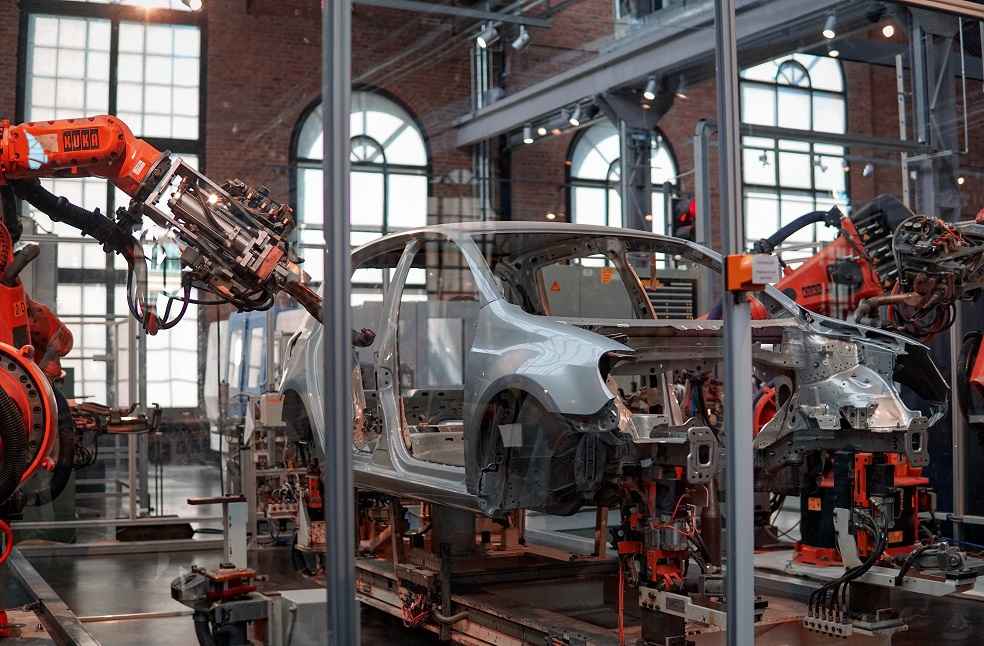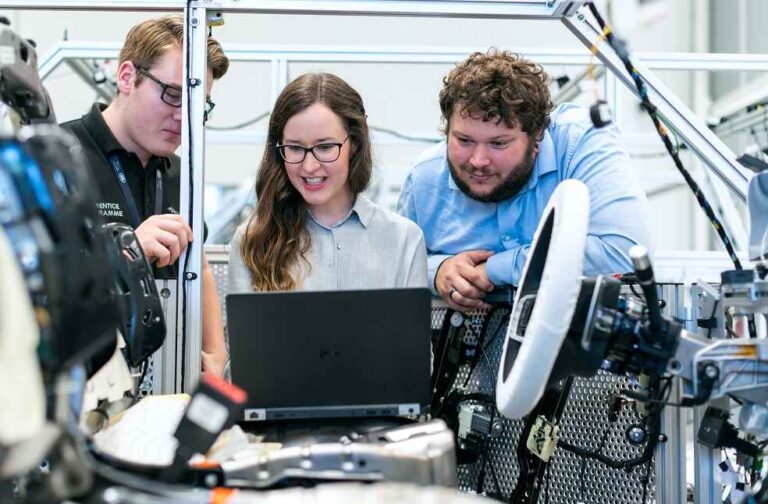The revolution of electric vehicles, autonomous driving, and the sharing economy has caused significant changes in the automotive industry recently. The most notable of these transformations is the adoption of blockchain in the automotive industry, the decentralized ledger technology known for powering cryptocurrencies like Bitcoin. The use of blockchain can greatly improve various aspects of the automotive industry, from manufacturing to ownership and maintenance.
Revamping Supply Chains with Blockchain
Blockchain brings significant changes in the field of supply chain management for improvements. Manufacturing of vehicles involves a complex network of suppliers, manufacturers and distributors. Blockchain can revolutionize the effective tracking and management of this complex network.

Parties involved in complex networks can use blockchain solutions to create and maintain a secure, efficient and immutable record of all transactions and interactions. This may result in loss of employment but can increase efficiency, reduce the risk of fraud and ensure accountability for all stakeholders.
Vehicle Tracking and Data Security
In addition to optimizing supply chains, blockchain also introduces valuable applications in vehicle tracking and data security. Essential vehicle information, such as ownership, maintenance history, and mileage, is typically stored in centralized databases, making them susceptible to hacking and data breaches.
By transitioning this data to a decentralized blockchain, it becomes significantly more challenging for hackers to access and manipulate it. The inherent transparency of blockchain further ensures that all stakeholders involved in a vehicle’s lifecycle can readily access and verify its history, creating a formidable deterrent against fraudulent activities.
Redefining Vehicle Ownership
Blockchain’s potential to revolutionize vehicle ownership and usage models is another intriguing possibility. The growth of the sharing economy has resulted in a rising trend towards ride-sharing services such as Uber and Lyft, leading many individuals to opt for these services over traditional car ownership.

Blockchain technology can facilitate this shift by enabling secure, peer-to-peer transactions between vehicle owners and users, paving the way for decentralized car-sharing platforms. Owners can rent out their vehicles directly to others when not in use, eliminating the need for a centralized intermediary like a traditional car rental company.
Blockchain’s Extensive Advantages
Blockchain technology brings several benefits to the automotive industry, thanks to its immutable, decentralized nature, transparency, and efficient functioning system. These advantages span transparency and security, efficient management, cost-effectiveness, user-friendliness, and data storage.
The implementation of blockchain also offers tremendous potential in streamlining and automating the automotive supply chain. This leads to increased efficiency and opens up opportunities for novel business models. Blockchain’s decentralized and transparent nature further contributes to the enhanced trust and credibility in processes such as vehicle valuation.

Noteworthy Use Cases
The automotive industry has a plethora of opportunities to harness blockchain technology. For instance, combating counterfeit car parts, a significant issue for automakers, becomes easier with blockchain’s transparency and verification capabilities.
Shipping companies can also benefit from blockchain’s secure data exchange and tamper-proof repository for cargo documents and shipping events. By integrating blockchain, companies can make their shipping processes more efficient and cost-effective.

Another promising application of blockchain is in the acceleration of self-driving vehicle development. Distributed ledgers and blockchains facilitate the seamless transfer of critical data between vehicle owners, researchers, and manufacturers, expediting the production of fully autonomous vehicles.
Blockchain technology serves as a revolutionary tool with the ability to transform traditional operating models, increase efficiency, and promote greater security and convenience, engulfing the automotive industry. Indeed, the coming years that the automotive industry is gearing up for are those with blockchain technology at the helm. While it may cause widespread job losses as many predict, it will also enable the automotive industry to expand further and reduce costs.
OBSERVATION | Auto Industry’s Intelligent Lighting Revolution





